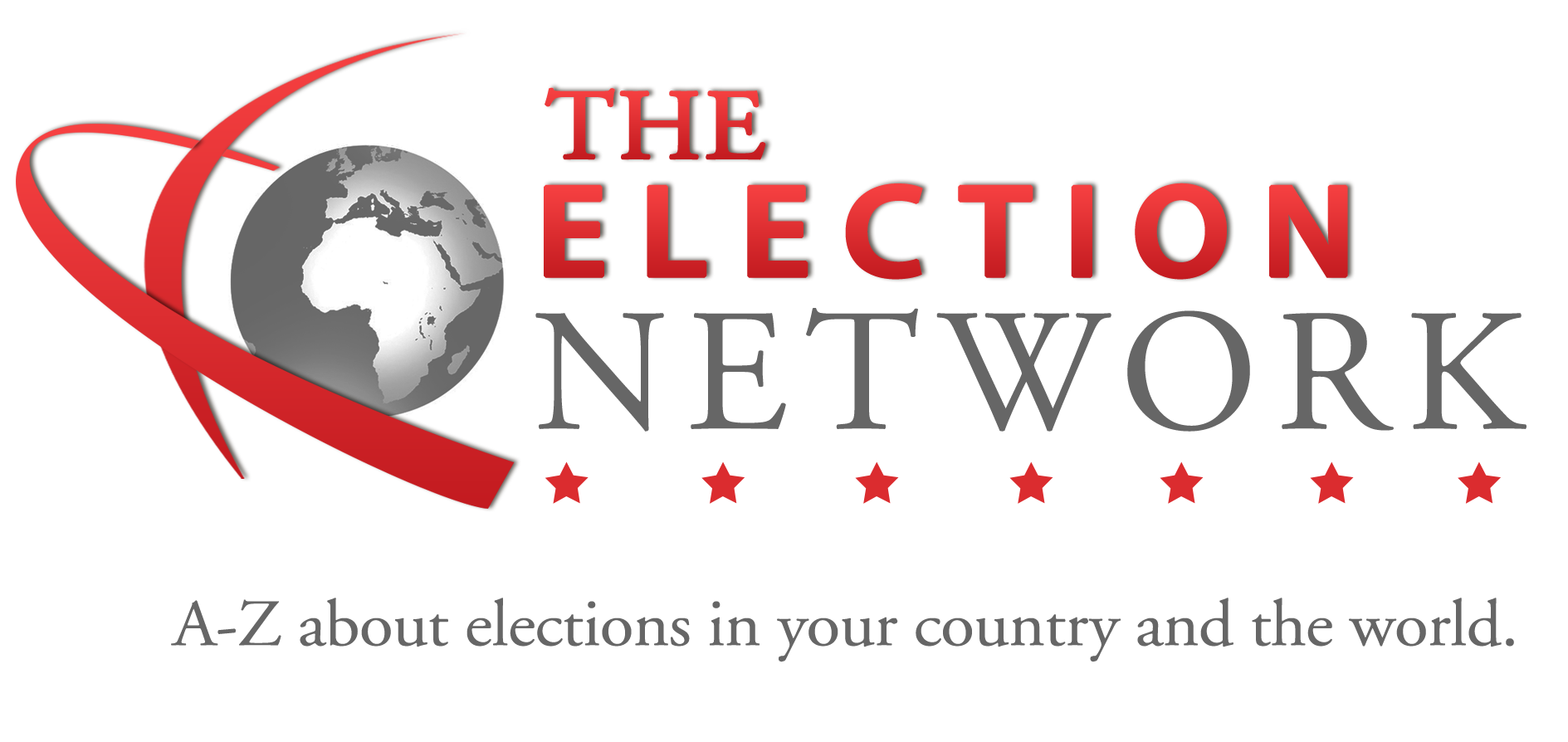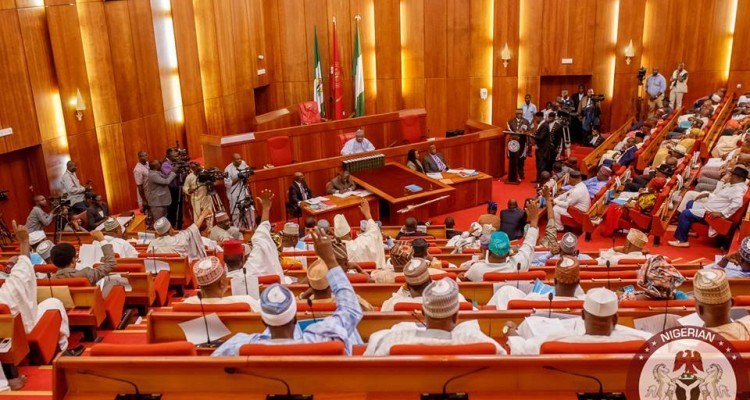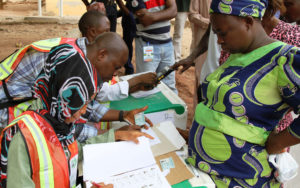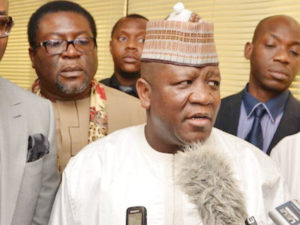After Wednesday’s inauguration of President Muhammadu Buhari, the attention of Nigerians can be expected to veer towards the National Assembly (NASS) where legislators have –for several weeks since the elections– been electioneering for various leadership positions.
For positions in both the Senate and House of Representatives, the competition has been quite tense and dramatic as legislators campaign among their colleagues leading up to the inauguration of the 9th Assembly on June 11th and the election of its leaders.
Who are the candidates? What positions are they vying for? What political parties do they represent? And what are their chances?
Position: Senate President
Contenders: Ahmed Lawan (Yobe); Mohammed Ali Ndume (Borno); Mohammed Danjuma Goje (Gombe); and Abdullahi Adamu (Nasarawa).
With a total of 64 senators-elect, the All Progressive Congress (APC), holds a majority at the legislative upper house. This means the party will produce the next Senate President; consequently, all the contenders for that position are members of the APC.
However, while all equally representing the same party, their chances at winning the Senate presidency is far from equal. So far, two Senators are leading the race; Senators Ahmed Lawan and Ali Ndume.
In March, during a dinner at the Presidential Villa, the National Chairman of the APC, Comrade Adams Oshiomhole, allegedly endorsed Senator Ahmed Lawan as the party’s candidate for the presidency of the 9th Senate.
Oshiomhole’s declaration has since caused a stir within the party, particularly among the faction loyal to Ali Ndume, the senator-elect from Borno State. A senator-elect from the party was quoted saying that Ndume’s supporters were displeased by Oshiomhole’s bullying.
Even though he is not the anointed candidate, Ndume, and indeed Lawan, have both been campaigning among their colleagues within the APC, and those in other political parties.
The main opposition, the Peoples Democratic Party (PDP), meanwhile is alleged to be plotting against Lawan’s candidacy. Senators-elect from the opposition are allegedly against his candidacy because he will compromise the independence of the legislature if he is elected. To avoid that, the main opposition is reportedly working to give block-votes to any other candidate who will preserve the independence of the Senate.
Position: Deputy Senate President
- Contenders: Francis Alimekhen (APC, Edo); Ovie Omo-Agege (APC, Delta); Oluremi Tinubu (APC, Lagos); Kabiru Gaya (APC, Kano), Orji Uzor Kalu (APC, Abia) and Ike Ekweremadu (PDP, Enugu).
The two main leaders of the 8th Assembly defected to the PDP shortly before the 2019 elections. In the Senate, this meant that both the President and Deputy Senate President were members of the main opposition even though APC had a majority in the House. In a bid to avoid a recurrence in the 9th Assembly, the APC has vowed that it will not share power with the main opposition. If the party indeed goes through with it, the position of the Deputy Senate President will also be occupied by a member of the ruling APC.
Read more about the contenders for the positions of Deputy Senate President and Deputy Speaker, House of Representatives here.
Position: Speaker, House of Representatives
- Contenders: Abdulrazak Namdas (APC, Adamawa); Mukhtar Aliyu Betara (APC, Borno); Idris Wase (APC, Plateau); Umar Bago (APC, Niger); Nkeiruka Onyejeocha (APC, Abia); Femi Gbajabiamila (APC, Lagos); John Okafor (APC, Imo); Babangida Ibrahim (APC, Katsina); and Mohammed Kazaure (APC, Jigawa).
As was the case with the leadership of the Senate, the APC also chose a party favorite for the position of the Speaker, House of Representatives. Oshiomhole, during another function, reportedly spoke on behalf of the party saying that Femi Gbajabiamila, a five-term member of the House, had been chosen as the next Speaker.
This decision has also not gone down well among members of the party. Two representatives, in particular, have had no reservations about their disapproval of Gbajabiamila as the anointed one.
Bago from Niger State and John Dyegh of Benue State have insisted for the party to zone the leadership of the House to the North-Central geopolitical zone. Both have claimed that the region is yet to produce a Speaker since the Fourth Republic began in 1999. However, the problem with that line of reasoning is that at least three other regions are also yet to produce a Speaker.
Members of the opposition have also found an opportunity here; they are allegedly waiting for the internal conflict within the APC to blow up so that they can elect their preferred candidates against the wish of the ruling party. To ensure that this works out, they have insisted for the method of voting to be the secret ballot method. As expected, the APC has kicked against that voting method.
Buhari’s Stance
In all of this, the President has so far managed to present an impartial front by refraining to speak in support of or against any of the candidates. Though Senator Ndume stated that Buhari had given his blessings for him to run for the presidency of the Senate, it cannot be taken as an indicator of Buhari’s preference for the Borno Senator. Still, Buhari has a vested interest in the leadership of the National Assembly, particularly given the problematic relationship he had with the leadership of the 8th Assembly.
Whether or not he comes out in favor of a preferred candidate, President Buhari, perhaps like the rest of Nigerians, has to wait and see how things will play in the next couple of weeks.



